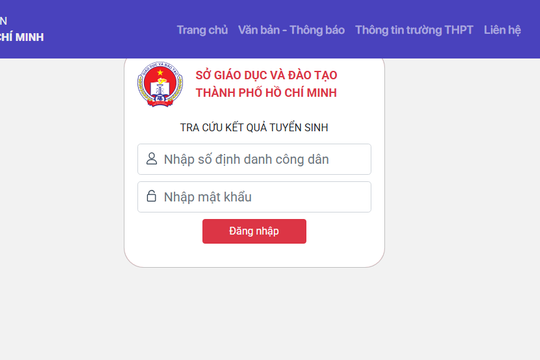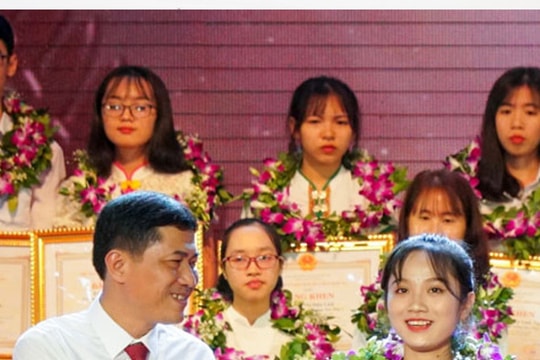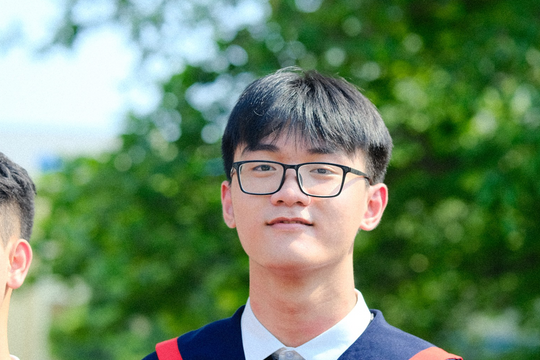9 things to keep in mind when reviewing for the national high school exam
The 2018 National High School Exam is approaching. In order to prepare for the exam with high results, Master Nguyen Xuan Nang - Teacher at Thuan Thanh High School No. 1 (Bac Ninh) reminds candidates of 9 important things that should not be missed.
1. Choosing subjects and test combinations must come from your real ability, avoid reviewing and choosing tests based on trends and movements. At our school, there are some students who choose wrongly, so the results of the surveys are very low, those are the students who have not accurately assessed their real ability.
After a period of review, some students changed subjects and blocks and achieved quite good results in university and college entrance exams and were successful in the field they later changed to.
2. Exam preparation needs to be built and planned properly, avoiding the situation of studying little in the beginning, then rushing into studying when the exam is near, but the effectiveness of exam preparation is still not high. Normally, for students of Thuan Thanh High School No. 1, the school has built and arranged the review from the 10th grade program until the end of 12th grade.
 |
| In the 2017-2018 National High School Exam, nearly 860,000 candidates nationwide registered to take the exam. Illustrative photo |
3. Do not study too much without having time to study by yourself, so that your review will be proactive and effective. In fact, there are quite a few students who spend almost 3 years on extra study but the efficiency is still very low, that is because there is no "effort" from the students themselves but the knowledge is completely from the teachers.
Normally, students should only attend extra classes 3 to 4 times a week, especially avoiding studying multiple times a day, studying at times when comprehension is less effective such as from 12 to 14 o'clock, from 17 to 19 o'clock, or studying too late at night.
4. Do not study with too many teachers for one subject, many students think that this way they will be able to refer to many knowledge and methods of the teachers. In reality, not all students are capable of filtering and understanding all the content that teachers convey and guide.
In our opinion, choosing a teacher that suits your ability and level will be the wisest and most effective choice. You should not choose a teacher based on trends or reputation.
5. Combine and promote well the learning in class and extra classes, many students think that extra classes are enough so they do not go to class, do not take notes... disregard the knowledge in textbooks and lectures in class. For those students, the results are often not high because they only have the tip but not the root.
6. For each subject, you should find and build for yourself a suitable and specific learning method. For example, for Natural Science subjects, you need to increase your ability to practice, do exercises and compare so that you can grasp both theoretical knowledge and master the types of exercises and test-taking skills.
For social sciences, there is a lot of knowledge that is difficult to remember and memorize. It is necessary to improve the ability to read, listen, think, and especially connect with reality, which will be the most effective learning method.
7. Do not study too lopsidedly. Many students think that studying only 3 subjects according to the block is enough. That is a completely wrong concept and choice. Studying all subjects evenly and sufficiently will contribute to supplementing knowledge that is both deeper and broader, and avoid overload when focusing too much time on a certain subject.
In fact, subjects not only complement each other but also help us in thinking and creativity. In addition, after passing the entrance exams and especially when working later, having enough knowledge in the subjects will contribute to our success.
8. “Learning from a teacher is not as good as learning from friends” is also the advice for candidates during the review process. In addition to studying in class, taking extra classes, exchanging between students, organizing group study, studying in pairs will also bring high efficiency in review because peers can easily openly exchange and share.
9. In addition to reviewing for the exam, practicing test-taking skills and participating in mock exams will also help improve your experience and ability to compete, helping you gain more confidence and courage in the official exam.
However, you should also avoid taking too many surveys and mock tests as this can affect the time and quality of your exam preparation.


.png)
.png)




